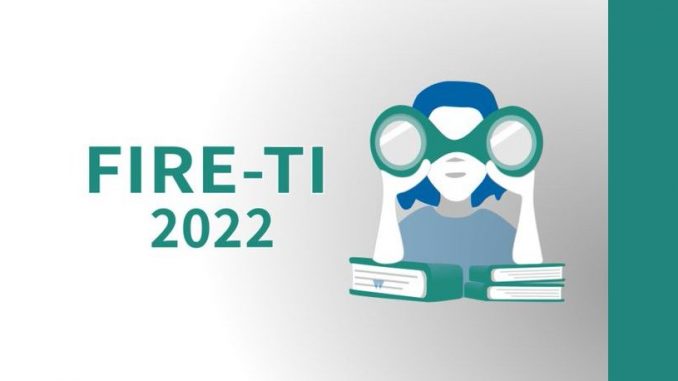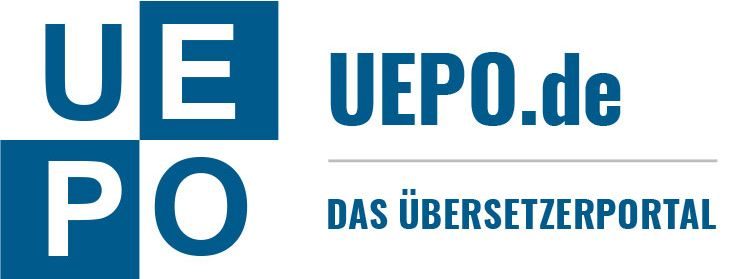
Eigentlich hätte die internationale Konferenz FIRE-TI 2022 (Field Research on Translation and Interpreting) vom 17. bis 19. Februar 2022 vor Ort in Wien stattfinden sollen, nachdem sie bereits um ein Jahr verschoben worden war. Wegen der zurzeit vierstelligen Omikron-Inzidenzen wurde sie jedoch notgedrungen ins Netz verlagert. Auf Teilnahmegebühren wird deshalb verzichtet.
Ausgerichtet wird die Veranstaltung vom Zentrum für Translationswissenschaft der Universität Wien mit Unterstützung der CIUTI (Conférence internationale permanente d’instituts universitaires de traducteurs et interprètes).
Die Konferenz will Forscher zusammenzubringen, die die Praktiken und Prozesse des Übersetzens und Dolmetschens aus einem interdisziplinären Ansatz heraus untersuchen, also zum Beispiel aus soziologischer, kognitiver, anthropologischer oder ergonomischer Perspektive.
Auf dem Programm stehen in drei Tagen mehr als 50 Präsentationen, die kurz und knackig in jeweils einer halben Stunde einen Aspekt aus dem weiten Feld der Translationswissenschaft abhandeln. Wegen der Menge der Beiträge laufen meist drei Präsentationen parallel, sodass interessierte Zuschauer die Qual der Wahl haben.
Die Zusammenfassungen der Vorträge wurden als Book of Abstracts bereits vorab veröffentlicht.
Wer die Konferenz online verfolgen möchte, muss sich über die Website bis zum 4. Februar anmelden.
Mehr als 50 Vorträge à 30 Minuten
17. Februar 2022:
Opening
- Hanna Risku, Conference Chair
- Ronald Maier, Vice-Rector, University of Vienna
- Klaus Kaindl, Deputy Head of the Centre for Translation Studies, University of Vienna
Keynote
- Kaisa Koskinen: Depends on Context – On the Whys and Hows of Fieldwork in Translation Studies
Methodological Reflections I: Researchers, Participants and Ethics
- Aurélien Riondel: Methodological and Ethical Challenges Regarding the Role of Participants in an Interview Study on a Sensitive Topic: The Translator-Reviser Relationship in Translation Departments
- Cornelia Staudinger: ‘Going Native’ During Field Research on Multilingual Legislation: Methodological and Ethical Strategies
- Sonja Pöllabauer, Jelena Milošević: Exploring the Field(s) of Community Interpreting: Challenges and Constraints of Interview Research
- Eloísa Monteoliva: Methodological Approaches to the Study of Interpreted Interaction Through a Multimodal Lens: A Transcription and Analysis Proposal
Situated and Distributed Cognition and Translation
- Álvaro Marín García: Modelling Socio-Cultural Constraints in Language Mediation Expertise Development
- Raphael Sannholm: Scaffolded Action in the Translation Workplace
- Annamari Korhonen, Maija Hirvonen: Socially Distributed Cognition in the Translation Workflow
- Mary Nurminen: Studying MT Gisting in the Patenting Ecosystem as Situated and Distributed Cognition: Findings and Challenges
Language, Boundaries and Construction Processes
- Dilek Dizdar, Tomasz Rozmysłowicz: Sorting Speakers Out: The Theoretical Relevance of Field Research in Translation Studies
- Kaiko Lenhard: What is a Translator? Comprehending Mental Frameworks in Narrative Interviews
- Natalie Bella: “90% I Understand” – On the Construction of Language Proficiency in Interpreted Interviews
- Katalin Tóth: The Practice and Challenges of Cultural Anthropological Translation in Light of Two Synagogical Fieldworks
18. Februar 2022:
Keynote
- Jemina Napier: Interpreting Studies as Linguistic Ethnography – New Theories, New Methods
Methodological Reflections II: Researching Digital Translation Cultures
- Regina Rogl: Why Online Content is Not Just ‘Easy Data’: Methodological Challenges in Ethnographic Online Research
- Clara Chuan Yu: Ethical Dilemmas and Self-Reflexivity in Ethnographic Fieldwork
- Sevita Caseres: Amateur Subtitling Practices – A Netnographic Study of Communication and Work Practices in French Online Translation Communities
Translators‘ and Interpreters’ Working Conditions During the Pandemic
- Klaudia Bednarova-Gibova, Maria Majherova: Researching Socio-Psychological Aspects of Translators’ Professional Well-Being – Freelancers Versus Agency Translators
- Pavol Šveda: Translators and Interpreters in Times of a Pandemic
- Nereida Betancor Sánchez: The Interpreter in Sweden – A Questionnaire Study on Professional Status and the Impact of COVID-19 in the Interpreters’ Experience with and Attitude Towards Remote Interpreting
Translation and Interpreting in Refugee and Humanitarian Contexts
- Alejandra González Campanella: Are We Doing Our Part? A Case Study of Interpreting in Refugee Contexts in New Zealand
- Asli Polat-Ulaş: Public Service Interpreters in the Turkish Context – Addressing the Communication Needs of Syrian Refugees
- Vanessa Steinkogler: Translation Practices in the Multilingual Organisational Environment of NGOs
Methodological Reflections III: Approaching the Field
- Lucile Davier: A Half-Closed Door – How Interpretive Analyses of Refused Access Can Benefit Qualitative Research in Translation Studies
- Magdalena Bartłomiejczyk: Field Research at a Distance – What and How Can We Learn About Interpreting in the European Parliament Without Direct Access to the Setting?
- Elizavetta Getta: Ethnographic Approach to Research on Interpreting in Tanzania – Challenges of Adjusting the Methodology
Remote Simultaneous Interpreting
- Karin Sibul: From On-Site to Off-Site
- Amalija Maček, Helena Biffio, Ira Zorko: Perception of Space in Remote Simultaneous Interpreting (RSI)
- Kilian Seeber, Dongpeng Pan: Got Sensors – Will Travel: Turning the Field into a Lab
Translation and Interpreting as Social Practices
- Rafael Schögler: Rethinking Translation Policy for Praxeological Approaches to T&I
- Şebnem Bahadır-Berzig, Raquel Pacheco Aguilar: The Theoretical and the Political in Field Research – Embodied Performances of Translation and Interpreting in Postmigrant Societies
- Daniela Schlager: A Structurationist Perspective on Translators’ Agency – Invisibility, Expertise and Ownership at a Translation Department
Managing Interpreting Processes and Networks
- Katia Iacono: Process Management and Interpreting in Cross-Border Patient Mobility
- Heidy Gutiérrez: Towards a Model for Community Interpreting Services: A Tool for Effective Communication in the Frontline
- Mira Kadrić, Katia Iacono: Interpreting in a Project Network Using the Example of a TV-Reportage
Emotions and Affect in Interpreting
- Laura Theys: Empathic Communication in Interpreter-Mediated Medical Consultations – A Qualitative Analysis of Interaction
- Sari Hokkanen: Affective Labor and Cognitive Strain in the Simultaneous Interpreting of Prayer
- Laura Theys: Beyond Words – The Use of Gaze and Body Orientation During Emotional Communication in Authentic Interpreter-Mediated Consultations
Texts, Agents and Processes in Specific Translation Fields
- Miriam P. Leibbrand: Insight into Financial Translation – A Field Report on Corporate Text Production Processes
- Ilse Feinauer, Amanda Lourens: The Reality of Revision
- Foteini Pateinari: Networks and Agents in the Field of Literary Translation Research – The International Book Fair of Thessaloniki (Greece) as a Case Study. A Sociological Perspective
19. Februar 2022:
Interpreting and Translation in Institutional Settings
- Flavia De Camillis: A Mixed-Method Approach for a Hybrid Translation Context – Non-Professional Translation in a Multilingual Institution
- Dalibor Mikić: The Courtroom as a Field of Research – Data Acquisition at Viennese Courts
- Liuyin Zhao: Interpreting in the UN Context – A Workplace Study
- Ivana Havelka: Disclosing Tap Interpreting – Hybrid Interpreting Sui Generis?
Processes in Literary and Academic Translation
- Leonora Min Zhou: Translation as Ekphrasis – The Role of Translator’s Maps in Translational Decision-Making
- Jing Yu: Collaborative Translators, Conflicting Norms – How Norms are Negotiated in Translaboration
- Ildikó Pusztai-Varga: Multiple Boundary Crossings – The Self-Translation of Academic Papers
- Claudine Borg: Inside the Literary Translation Workshop
Current Landscapes of Translation Work
- Minna Hjort, Minna Ruokonen: Extinction or Evolution? Developments in In-House Translation in Finland from 1995 to 2018
- Mehmet Şahin, Neslihan Kansu-Yetkiner: Building Psychosocial and Physical Ergonomic Awareness through Project-based Training – Some Insights from Turkey
- Lamya Khelil: What Does Hiring a Translator in the Digital Era Look Like?
- Sara Orthaber, Aleksandra Nuč Blažič: Self-Promotion on a Translator’s Forum
Weiterführende Links
- Konferenzwebsite: Information und Anmeldung
- FIRE-TI 2022 Book of Abstracts herunterladen (PDF, 99 Seiten)
Richard Schneider
